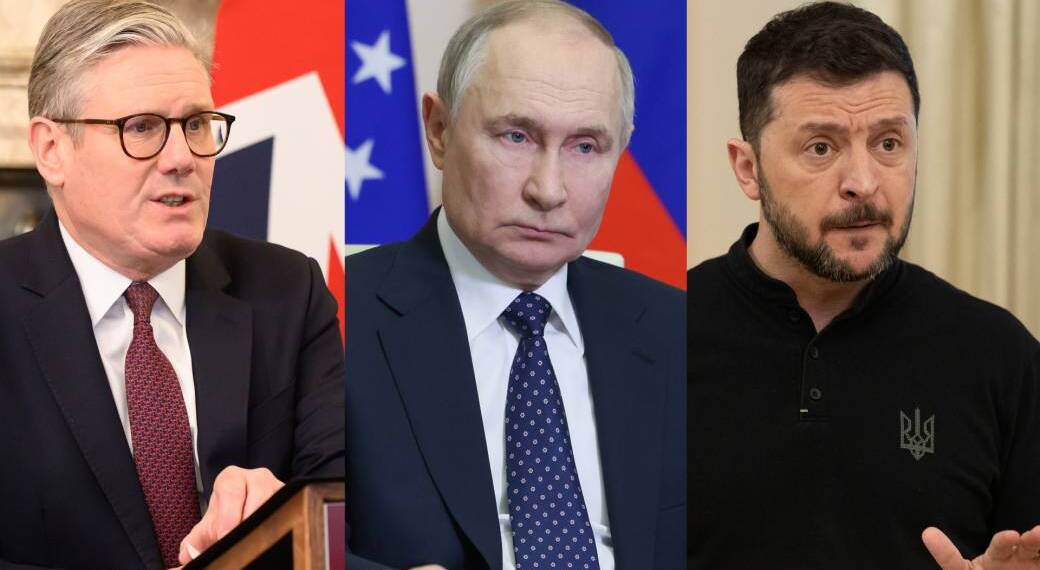Russia has accused NATO of orchestrating a major military buildup in Moldova, claiming the Western alliance is attempting to turn the neutral Eastern European country into a “battering ram” for potential aggression against Russia. The allegations, issued by Russia’s Foreign Intelligence Service (SVR), come amid Ukraine’s continued battlefield losses and a broader reconfiguration of NATO’s eastern posture.
According to a public statement from the SVR, NATO has significantly intensified its military cooperation with Moldova, allegedly transforming the country into a “military foothold” on Russia’s border. The intelligence service claims that:
Moldova’s railway infrastructure is being converted to NATO-standard gauge to facilitate troop movements.
Bridges are being reinforced to support heavy military equipment, while Airfields are being upgraded to accommodate NATO aircraft. New supply depots, command centers, and logistics hubs are also under development.
The SVR also alleges that NATO is training Moldovan forces in Western combat doctrines, potentially preparing them for future frontline deployment. It warned that the Moldovan people were being set up to become “cannon fodder” in a potential conflict between NATO and Russia much like Ukraine.
Targeting Moldova’s Neutrality
Russia’s intelligence chiefs accused Moldovan President Maia Sandu of “betraying her nation’s constitutionally enshrined neutrality” in favor of advancing NATO interests. They assert that her administration is serving as a “comprador regime” for the West. Moscow points to Moldova’s 2024 security agreement with the European Union — which deepens military and intelligence cooperation — as a de facto abrogation of neutrality.
With Moldovan parliamentary and presidential elections approaching in September, Russian officials have warned that Sandu’s re-election could solidify Moldova’s shift toward full NATO alignment.
Moldovan officials however have denied that they are seeking NATO membership, reiterating the country’s official stance of permanent neutrality, enshrined in Article 11 of the Moldovan Constitution. However, they acknowledge deepening cooperation with NATO and the EU in areas such as cybersecurity, intelligence sharing, and defensive training.
NATO has not responded directly to the SVR’s accusations, but previous statements by Secretary General Jens Stoltenberg emphasized that cooperation with Moldova is “purely defensive” and respects its neutral status.
Impact of these developments
This confrontation underscores a broader pattern in the post-Ukraine war landscape: as Ukraine’s battlefield position weakens, NATO appears to be reinforcing support to vulnerable neighboring states like Moldova and Georgia. The West views these partnerships as essential to contain Russian influence. For Moscow, however, it signals encroachment and provocation.
The strategic stakes are significant:
For NATO: Moldova is viewed as a soft border state vulnerable to Russian destabilization, especially via Transnistria.
For Russia: Any shift in Moldova’s neutrality is perceived as a red line, potentially justifying hybrid or even kinetic responses.
For Moldova: The nation is caught in the middle — a fragile democracy balancing its European aspirations with the risk of becoming a proxy battleground.
Western analysts caution that Russia may use the Transnistria issue take decisve actions, much like it did in Donbas in Ukraine. Moldova’s September elections could become a flashpoint if Russia decides to intervene overtly or covertly.
Russia’s Response
The Kremlin has sharply criticized NATO’s activities in Moldova, calling them a direct threat to regional security. Russian Foreign Ministry spokesperson Maria Zakharova said on Monday:
“The actions of NATO in Moldova represent another step in the bloc’s unrelenting expansion toward Russian borders. This is not about defense — it is about escalation.”
Russia has hinted at possible “countermeasures,” including expanding its military presence in Transnistria — a pro-Russian breakaway region in eastern Moldova where several hundred Russian troops are already stationed under a peacekeeping mandate.
Additionally, Russia has increased aerial surveillance over Moldova and the Black Sea region and reportedly conducted electronic warfare exercises near its western borders.
The escalating tensions in the region have already led to an all-out clash between Ukraine and Russia. With NATO’s constant meddling this may evolve into a widespread geopolitical and military clash with devastating consequences.
The entry of NATO into Russia’s neighboring regions has long been seen as a major red line by Moscow, however this has not deterred NATO which continues to test Putin’s patience. With their entry now into Moldova Kremlin will once again be forced to act, the region and the world can only hope this does not snowball into another full-scale conflict.








